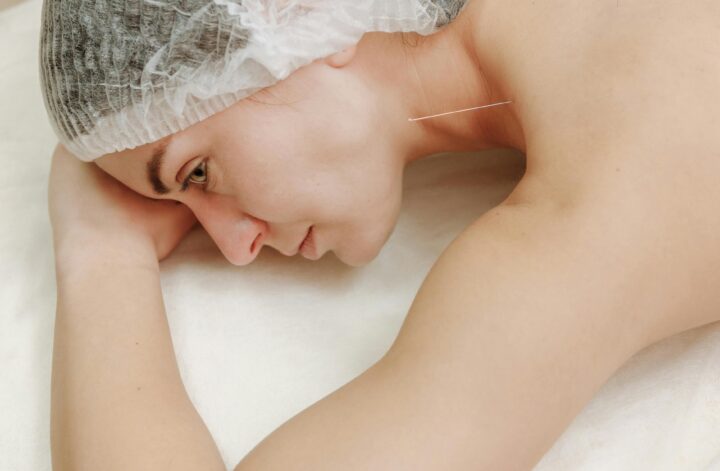Acupuncture, a traditional Chinese medicine practice involving the insertion of thin needles into specific points on the body, has been used for thousands of years to treat various ailments. In recent decades, its potential benefits for fertility have garnered significant attention. Many couples struggling with infertility are turning to acupuncture as a complementary therapy alongside conventional treatments. But can acupuncture really help you conceive? This article explores the science behind acupuncture and its potential impact on fertility.
Understanding Acupuncture
Acupuncture is based on the concept of balancing the body’s energy, or “qi” (pronounced “chee”), which flows through pathways known as meridians. By stimulating specific points along these meridians, acupuncture aims to restore balance and promote overall health.
How Acupuncture May Improve Fertility
Research suggests several mechanisms through which acupuncture might enhance fertility:
1. Regulating Hormonal Balance Acupuncture can influence the endocrine system, which regulates hormones critical for reproduction. By promoting hormonal balance, acupuncture may help regulate menstrual cycles and improve ovulation in women with irregular periods.
2. Increasing Blood Flow to Reproductive Organs Acupuncture is thought to enhance blood flow to the uterus and ovaries, which can improve the health of the endometrial lining and support the development of healthy eggs. Increased blood flow to the testicles in men can also promote sperm production and quality.
3. Reducing Stress Stress is a significant factor in fertility issues. Acupuncture has been shown to reduce stress and anxiety levels by promoting the release of endorphins, the body’s natural painkillers and mood enhancers. Lower stress levels can positively impact hormonal balance and reproductive function.
4. Improving Egg and Sperm Quality By enhancing overall health and reducing oxidative stress, acupuncture may improve the quality of eggs and sperm. This can be particularly beneficial for couples facing age-related fertility challenges.
5. Supporting Embryo Implantation Acupuncture may enhance the likelihood of embryo implantation by improving uterine receptivity. This is particularly relevant for women undergoing in vitro fertilization (IVF), where implantation is a critical step.
Acupuncture for Women
1. Regulating Menstrual Cycles For women with irregular menstrual cycles, acupuncture can help regulate the cycle by promoting hormonal balance and addressing underlying issues such as polycystic ovary syndrome (PCOS) or thyroid imbalances.
2. Enhancing Ovulation Acupuncture may stimulate ovulation in women with anovulatory cycles (cycles where no ovulation occurs). This can be particularly helpful for women with PCOS or other ovulatory disorders.
3. Supporting IVF Treatments Many fertility clinics incorporate acupuncture into IVF protocols. Acupuncture before and after embryo transfer has been associated with increased pregnancy rates in some studies. It can also help manage the side effects of fertility medications.
Acupuncture for Men
1. Improving Sperm Quality Acupuncture can enhance sperm quality by increasing sperm count, motility (movement), and morphology (shape). This can be beneficial for men with suboptimal semen parameters or unexplained infertility.
2. Reducing Erectile Dysfunction Stress and anxiety can contribute to erectile dysfunction, which can impede conception. Acupuncture’s stress-relieving effects can help alleviate this issue, promoting better sexual health and function.
Scientific Evidence
While acupuncture has been practiced for centuries, scientific research on its effectiveness for fertility is still evolving. Some studies have shown promising results, while others have found no significant benefit. Here are a few key findings:
1. Positive Impact on IVF Outcomes A 2012 meta-analysis published in the journal Fertility and Sterility found that acupuncture performed around the time of embryo transfer improved pregnancy rates in women undergoing IVF. However, more recent reviews have called for larger, well-designed trials to confirm these findings.
2. Hormonal Regulation Research has shown that acupuncture can influence levels of reproductive hormones such as luteinizing hormone (LH), follicle-stimulating hormone (FSH), and estradiol. These hormones play crucial roles in ovulation and menstrual cycle regulation.
3. Improved Sperm Quality A 2005 study published in Fertility and Sterility found that acupuncture treatment improved sperm motility and morphology in men with infertility. However, further research is needed to establish consistent benefits.
Practical Considerations
1. Finding a Qualified Practitioner It’s important to seek treatment from a licensed and experienced acupuncturist, particularly one who specializes in fertility. Ask for recommendations from your healthcare provider or fertility clinic.
2. Frequency and Duration of Treatment Acupuncture treatment plans are typically individualized based on the patient’s specific needs and fertility issues. Most practitioners recommend starting treatments 3-6 months before trying to conceive or beginning fertility treatments.
3. Combining with Conventional Treatments Acupuncture is often used as a complementary therapy alongside conventional fertility treatments such as IVF or intrauterine insemination (IUI). Always consult with your fertility specialist to ensure an integrated and coordinated approach.
Conclusion
Acupuncture offers a holistic approach to enhancing fertility, potentially benefiting both men and women through hormonal regulation, improved blood flow, stress reduction, and better egg and sperm quality. While scientific evidence is still emerging, many couples have found acupuncture to be a valuable addition to their fertility journey. If you’re considering acupuncture, consult with a qualified practitioner and your healthcare provider to develop a personalized and effective fertility plan. By combining the best of traditional and modern medicine, you can optimize your chances of conceiving and achieving a healthy pregnancy.




